With an overall DxOMark Mobile score of 88 points the HTC 10 offers outstanding mobile photography for both stills and video. Featuring a 12Mp 1/2.3-type sensor, this device excels for autofocus and texture preservation, making it a great choice for shooting moving subjects, or capturing detailed landscape and architectural shots. The overall DxOMark score is calculated using both the Photo and Video sub scores. Presented scores are rounded to the nearest whole number, with greater weight given to the Photo subscore when calculating the overall score. Each subscore analyses image quality in a range of categories, including Exposure, Autofocus, Texture, Noise, Artifacts and Flash, with each tested in varying lighting conditions. A great all rounder, the HTC 10 scored well in all our tests, securing a final Photo sub score of 88 and 86 for Video.
Outdoor pictures with excellent exposure and clearly defined detail
An excellent option for outdoor pictures, the HTC 10 delivers first class exposures on most shots, along with neutral white balance and accurate color. Color shading is also well controlled in bright conditions and the HTC 10 records good detail, with 100% crops of buildings showing clearly defined and intricate detail. Combine that with its ability to squeeze a lot in to the frame, thanks to the 26mm wide-angle lens, and it’s a great camera phone for landscape, architecture and street scenes.
Great balance between sharpness and noise in low light
Indoors, image quality remains excellent with many accurate exposures and color rendering for successful low light photography. In extremely dim conditions of just 5 lux exposures were a little dark, but this isn’t uncommon for mobile devices, and even in these challenging environments autofocus was fast and accurate.
Shooting under a tungsten light source, white balance stays pleasant with only a slight yellow color cast visible. Minor color shading also occurs. The rich detail preservation observed on outdoor shots persists indoors too, and HTC have found a great balance between noise reduction and sharpness, ensuring good textures with only a fine luminance grain evident.
TIP: To really make the color pop on your indoor shots try overlaying a subtle blue filter in a postproduction app to mitigate any yellow colorcast and increase the saturation and vibrance to give slightly under-saturated color a little more punch.
Dual-tone LED flash delivers great exposures, detail and color
The HTC 10 boasts a dual-tone LED flash, which is not only brighter than a single LED unit. The HTC 10’s flash delivers good overall exposure with consistent brightness across the frame, together with accurate white balance. Flash only results boast good exposure, color and a high level of detail preservation, but some light attenuation (darkening of the corners) occurs where the flash fails to reach the edge of the frame.
Video Overview and Highlights
Solid video performance makes the HTC 10’s 2160@30fps capture an excellent choice for photographers who value video image quality as much as stills.
Details: Explaining the score
Exposure and Contrast (89)
An excellent Exposure and Contrast score of 89 for stills is one of the highest we’ve recorded. This overall result is comprised of bright and low light scores, 89 and 79 respectively, with greater weight given to its bright light performance in the final presentation. Our perceptual analysis of natural scene exposures scored the HTC 10 at 4.6 out of 5 (4.6/5), thanks to good target exposures and dynamic range in most situations. The only minor issues were slightly overexposed highlights when photographing very high contrast scenes.
TIP: When shooting high contrast scenes get into the habit of checking the brightest areas in preview mode to see if they’re overexposed. If clipped, try slightly reframing the composition with less sky, or bright areas, and include more of the lower contrast details and textures to help the camera achieve the best target exposure.
Color (84)
Perceptual analysis of image quality scored white balance accuracy, color shading and color rendering is very good in bright light. In low light, color shading was also very good.
Autofocus (93)
Fast and accurate in all conditions, the HTC 10’s autofocus actually scored higher in low light conditions, achieving 93/100, compared to 92/100 in bright light. In bright light, high scores were recorded for sharpness, speed, smoothness and stability.
A bright light repeatability test of 30 shots, defocusing between each shot, scored higher in Auto mode with an average acutance difference of just 1.5%. In Trigger autofocus mode repeatability was very slightly lower at 3.9%, with some slight focus irregularities recorded. In low light the two modes were much closer however, at 1.9% for Auto and 1.4% for Trigger.
Texture (93)
Noise (87)
The HTC 10 achieved outstanding results for both Texture – 97/100 bright light, 88/100 low light, and Noise – 91/100 bright light, 87/100 low light.
Perceptual analysis of image quality scored Texture very high in bright light and low light. Noise scored lower at 4.2/5 in bright light, due to some luminance noise visible in large blocks of uniform color such as a sky. Noise in low light scored a very good result with only a fine grain noise effect visible when shooting under a 20 Lux light source.
Artifacts (89)
Artifacts scored very well too at 91/100 in both bright and low light conditions. The only minor concerns were some loss of sharpness at the edges of the frame compared to the centre, visible moire on high frequency patterns and a very slight ringing effect visible on high contrast edges.
Flash (83)
An overall flash score of 83/100 is good, but not outstanding. Overall flash delivers good exposure, color and detail preservation with the only concerns being noticeable but low flash fall off in the corners in flash only pictures and slightly under-saturated color when mixing flash with additional tungsten light sources.
Video (86)
Many of the HTC 10 strengths for stills are evident in its videos, with excellent exposure, color and white balance in both lighting conditions. Texture preservation and noise reduction are also excellent in bright light, both scoring into the 90’s out of 100, with low light videos displaying just a little luminance noise in patches of uniform color. Video also boasts fast and accurate autofocus in most situations, with the only observed failure during panning. Video stabilization is also reliable, scoring 83 in both bright and low light conditions, with just some very minor residual motion evident with walking motion.
Photo Pros
- Very good detail preservation in all conditions.
- Fast and accurate autofocus in all conditions.
- Good exposure.
- Good noise reduction in low light conditions.
- Generally good white balance and accurate color rendering.
Video Pros
- Good stabilization.
- Good exposure.
- Good white balance and color rendering in all conditions.
- Accurate and fast autofocus.
Photo Cons
- Visible loss of sharpness in the corners compared to the center.
- In very high contrast scenes, the brightest highlights are over exposed.
- Some luminance noise visible in the sky.
- Using flash with no other light source, some flash fall off and noise visible in the corners.
Video Cons
- Some residual motion with walking movement.
- Luminance noise visible in low light conditions.
- Occasional focus failures while panning (device stays unfocussed).


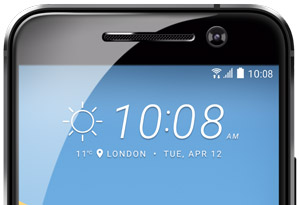


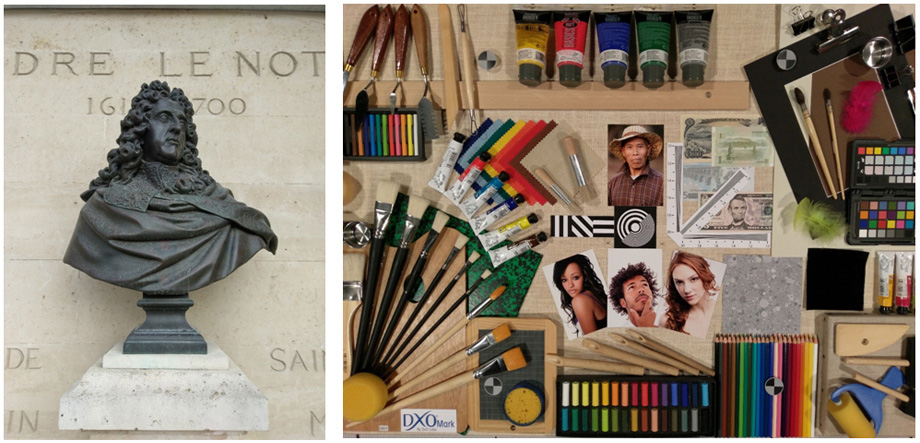

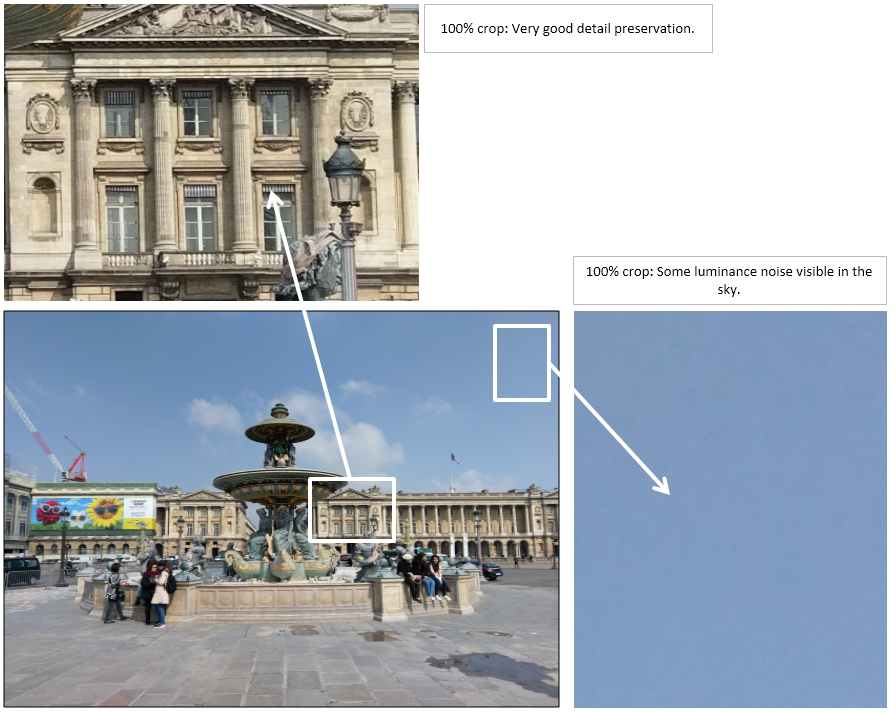
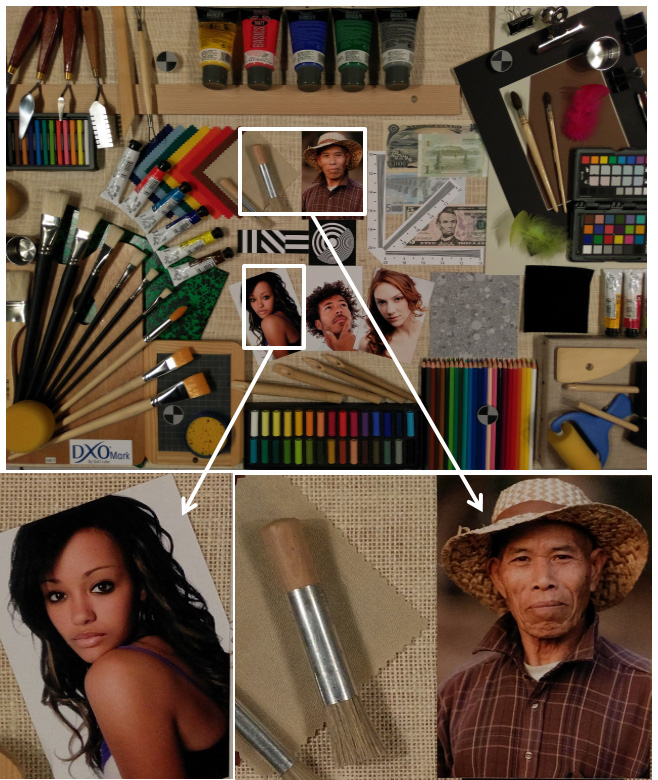
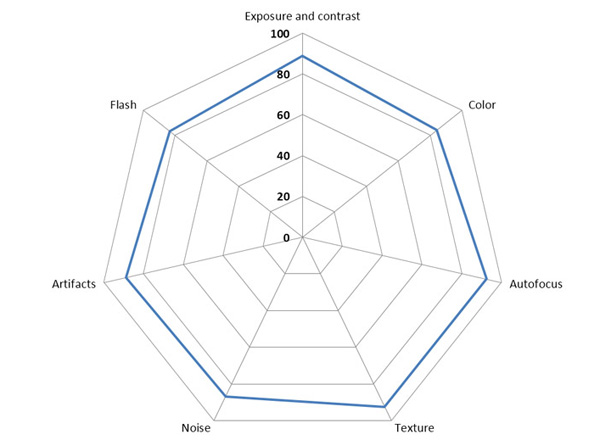
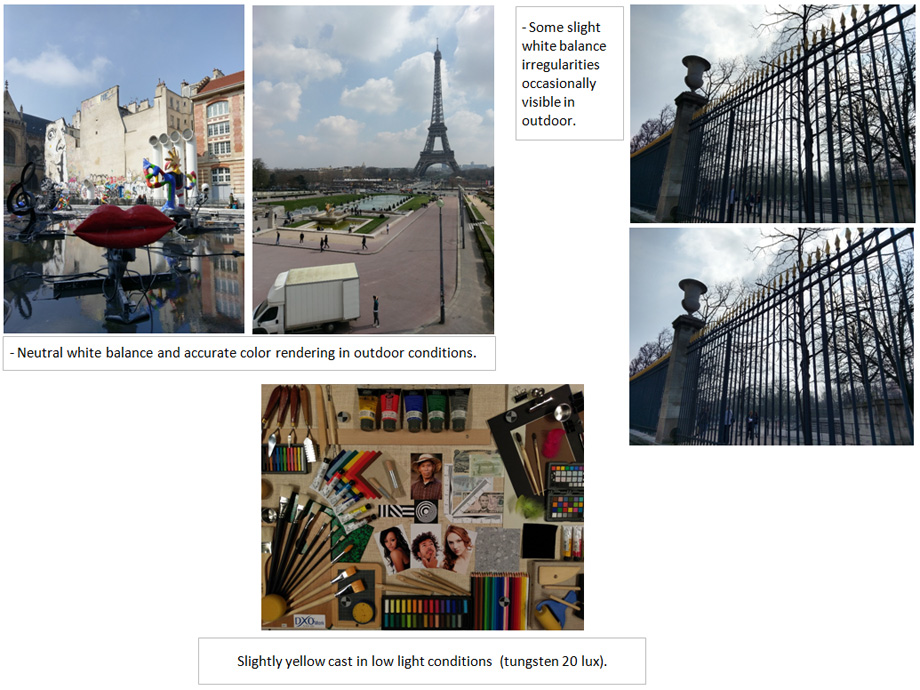
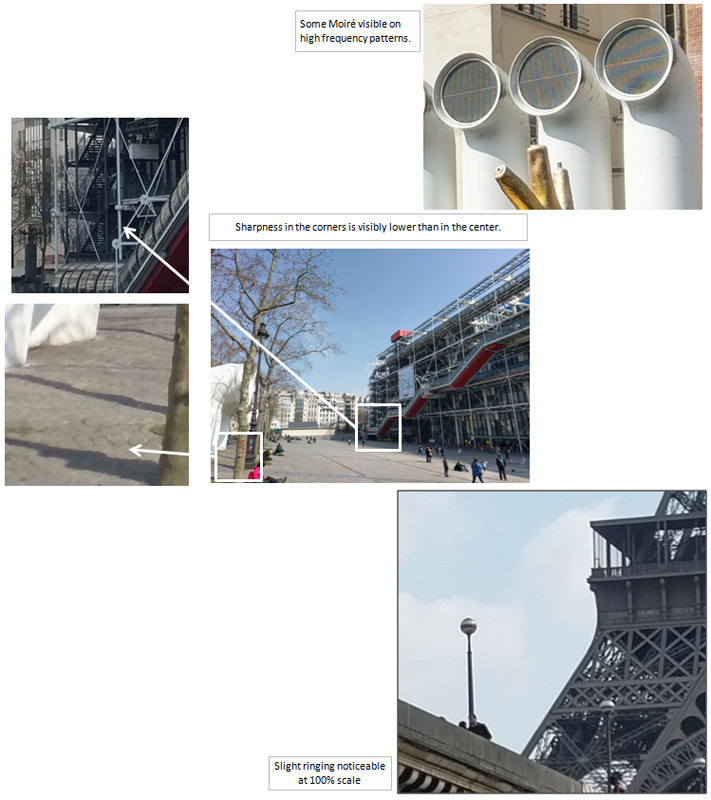
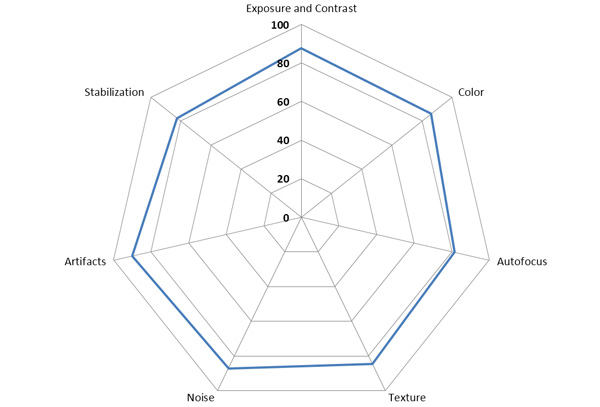
DXOMARK encourages its readers to share comments on the articles. To read or post comments, Disqus cookies are required. Change your Cookies Preferences and read more about our Comment Policy.